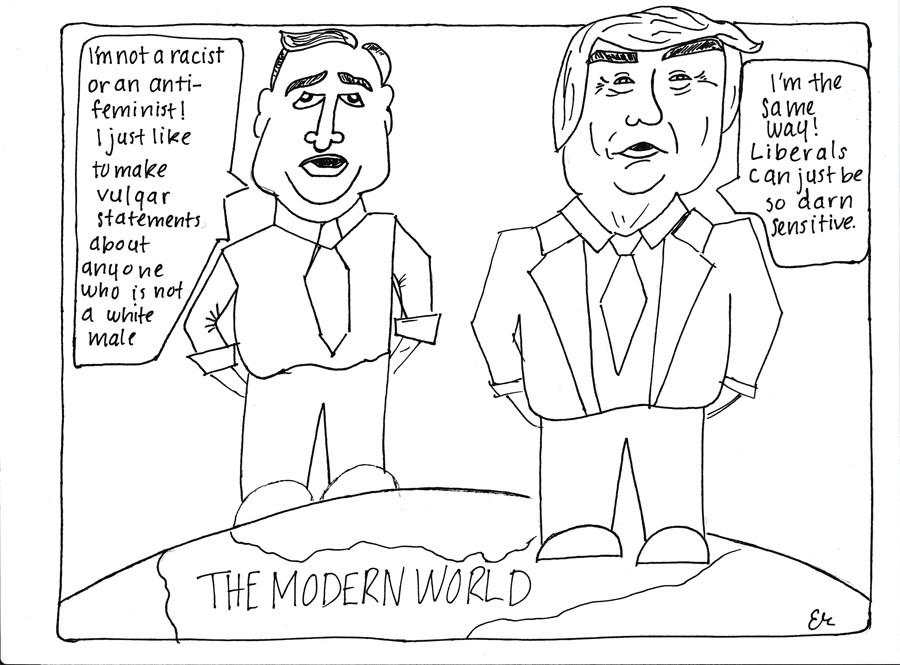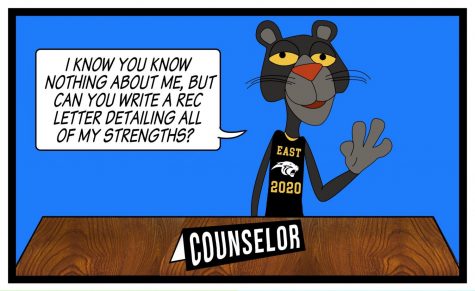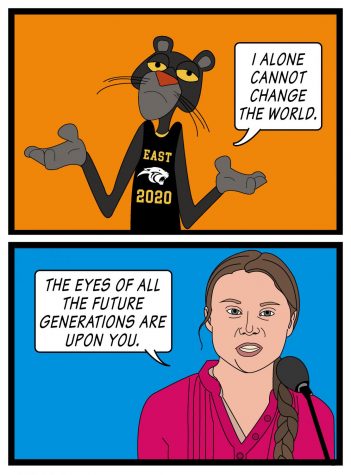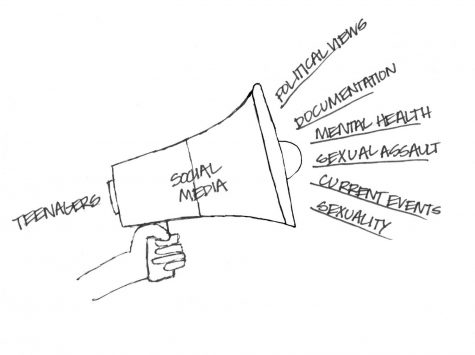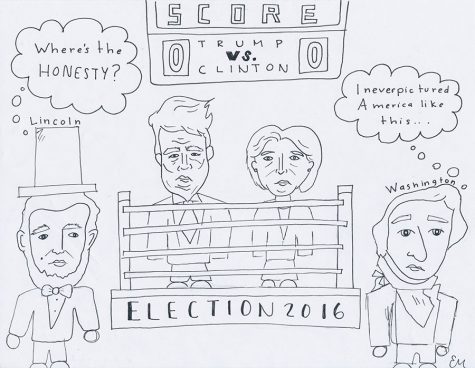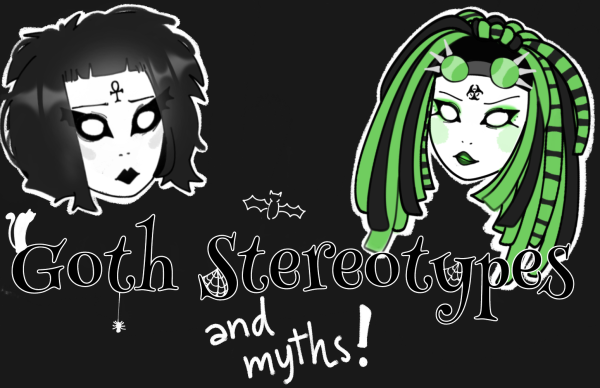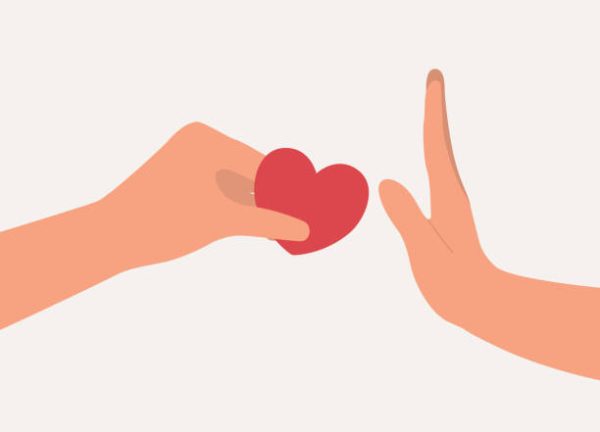The reality of PC culture
Political correctness is necessary in the battle against racism, sexism, LGBT+ phobia, ableism and more in America. Those who believe that these things don’t exist need to wake up and smell the bigotry that still runs rampant in this country. The oppression of minorities is not a thing of the past. The fight for civil rights was not a battle that was simply fought, won and added to the list of historical movements we must memorize for tests and trivia game shows. Whoever believes otherwise must dispel these gross misconceptions from his or her mind. I know that, in our utopian world, it seems absolutely absurd to think not all of our inhabitants are treated equally; however, we must accept the reality that prejudice and discrimination still fester in this nation, and it is our duty to fight them.
When people criticize PC culture, they believe it’s because its supporters champion a toxic dehumanization of anyone in the majority: white people, straight people, men, etc. This is not the case. Political correctness proponents don’t just blindly hate anyone from these demographics; they distrust the privilege that people from these demographics have. I implore you to remember the fact that the majorities have had profound privilege in society for the entirety of American history, and proponents of PC culture want to gain equality and fight the majority’s privilege.
Yes–privilege. It’s a confusing word, I know, but let me explain. It doesn’t mean that all members of the majority are rich and have no problems. It means that when it comes to matters of race, gender, sexual orientation, etc., the majority has an institutionally perpetuated advantage.
Let’s take the gender wage gap, for instance. It’s a common statistic, repeated so many times it seems to have lost its impact. As recited over and over again, the average woman earns 78 cents to the white man’s dollar–but that is the average woman. This number does not break it down in terms of race. As a matter of fact, most women of a minority race earn even less compared to a white man. According to this table from the American Association of University Women, the numbers are even more alarming when taking race into account.

These numbers depict not only men’s advantageous positions in society, but also white people’s. Overall, white men earn more than woman of any other race. And that is institutionally perpetuated privilege. It doesn’t mean that white men are evil. It means that we work in a system in which they automatically receive more compensation for doing the same work because of prejudice and discrimination.
Another example of privilege is heterosexual privilege. Same-sex marriage was legalized fairly recently in June 2015. Before that, gay people didn’t have the basic right of marriage to someone they love because they were both of the same sex. Yet even after it was legalized, there were American citizens who were outraged by this step toward equality, such as Kim Davis. Davis was a county clerk from Kentucky who Kim Davis from Kentucky decided that she wouldn’t give a marriage license to a same-sex couple because it didn’t fall under her own religious beliefs. Heterosexual privilege is being able to coast about the world, unafraid of the Kim Davises that lurk nearby, threatening to withhold the ability to get married because of sexual orientation.
To many right-wingers, it seems that PC culture is oppressing them, which is a laughable notion because what is actually happening is this: the people who are really oppressed have come to the realization that they don’t have to accept the disadvantages with which they have been faced. Instead of quietly accepting the daily injustices they endure, they are speaking out against them. They are teaching people how to properly talk about subjects they know nothing about, like the fact that gender and sex are two different things. LGBT+ doesn’t just mean gay people, it means people of all genders and sexual orientations, such as bisexual and transgender people. #BlackLivesMatter doesn’t mean #NoOtherLivesMatterAtAll but that #BlackLivesHaveBeenContinuallyThreatenedAndHarmedAndRecognizingBlackLivesSpecificallyGivesBlackLivesAVoiceThatTheyNeedRightNow (but that hashtag wouldn’t have fit the Twitter character count). We must take proper care when discussing subjects that pertain to politics and our societal values, and understand when we have privilege or when others have faced oppression.
“But why?” you cry out in dismay. “Why must everyone be so sensitive to everything?”
Why not?
No, really. To those who wonder why they suddenly need to watch what they say, I must ask, why not? Why not recognize our war-torn history ridden with atrocities such as slavery or the drastic decline of a once-vast Native American population? Why not respect those who suffer from the oppression that has been prevalent in this country since its birth? Why not be politically correct in what we say or do in order to fight oppression?
And to those who say that PC culture supporters hate any viewpoint that isn’t theirs, that you are unfairly called racist or homophobic for simply stating your opinion, please kindly check your hypocrisy. If you say something ignorant, we will inform you that what you said is ignorant. That’s how it’s supposed to work. Don’t get upset if you suddenly realize that you have been internalizing bigoted beliefs. Correct your bigoted beliefs instead.
PC culture is dedicated to allowing oppressed minorities a voice and granting them respect in a world where they always haven’t been respected. I concede that it might be difficult for some majorities to actually have to pay so much attention to the plethora of minorities that outnumber them. It must be so hard for them to admit that oppression is real and not a myth told in those pesky, fictional history books that they’re forced to read and never remember again because nothing they read pertains to them. Yet they need to make the sacrifice of shifting their political discourse from themselves (for the majority of our government is made up of privileged people) to those who need–and deserve–a voice.



